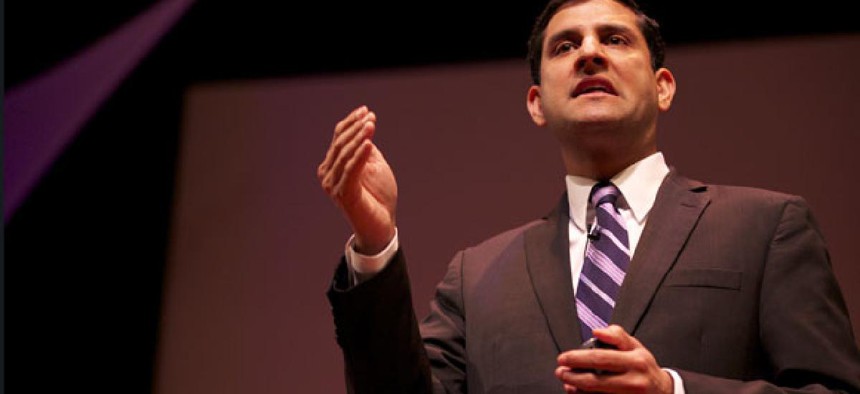Federal Facebook could outdo conferences, former CIO says

Flickr user personaldemocracy
Vivek Kundra says social networks in government offices could connect foreign-based colleagues and customers.
The federal government needs social networks -- not more conferences -- to connect colleagues in far-flung places, former federal Chief Information Officer Vivek Kundra said Monday at a conference hosted by Nextgov’s parent organization Government Executive Media Group.
“Why is it that you don’t have an employee social network?” pondered the recent hire at cloud services firm Salesforce.com. “This notion of creating an employee social network is so important.”
Kundra suggested that agencies -- many of which are “multinational” with foreign offices -- establish online communities where U.S.-based staff, overseas co-workers and their customers can informally connect anytime, anywhere.
“I would argue that it’s better than a point-in-time conference to build up these social networks because they persist across time,” he said. “It’s going to destroy this notion of distance.”
During the past month, government conferences organized by the General Services Administration and National Oceanic and Atmospheric Administration have garnered charges of costly extravagance.
Kundra’s new job as Salesforce’s executive vice president of emerging markets involves applying social tools to make governments more efficient, transparent and collaborative. But big data generated by the increasing use of social technologies and the Internet can overload people’s circuit breakers if it’s not analyzed properly, he noted.
Big data -- the huge of amount information now available for fact-finding and analysis -- has changed the meaning of the term sensors, Kundra said. People usually think of sensors as motion and speed detectors on streets that discern traffic patterns. “But what we haven’t really talked a lot about yet is people in their everyday lives are instrumenting the entire planet” by taking photos on their mobile phones or Tweeting about the weather, he said.
All the transactions are happening in milliseconds so parsing them in real time could yield immediate insights, unlike monthly or even daily reports. “The problem of separating noise from signal is critical” when sensors are everywhere, Kundra added.
NEXT STORY: OPM's Social Media and Openness Struggles






